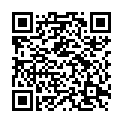|
|
|
| Module code: KI580 |
|
|
2V (2 hours per week) |
|
2 |
| Semester: 5 |
| Mandatory course: yes |
Language of instruction:
German |
Assessment:
Ninety-minute written exam
[updated 20.03.2007]
|
KI580 (P222-0015) Computer Science and Communication Systems, Bachelor, ASPO 01.10.2014
, semester 5, mandatory course
|
30 class hours (= 22.5 clock hours) over a 15-week period.
The total student study time is 60 hours (equivalent to 2 ECTS credits).
There are therefore 37.5 hours available for class preparation and follow-up work and exam preparation.
|
Recommended prerequisites (modules):
None.
|
Recommended as prerequisite for:
|
Module coordinator:
Prof. Dr. Horst Wieker |
Lecturer:
Prof. Dr. Horst Wieker
Joachim Adt
[updated 01.04.2003]
|
Learning outcomes:
After completing this course, students will have acquired a comprehensive understanding of the business transactions used in the telecommunications industry. Students will learn about the business relationships between a carrier and another carrier, a carrier and a private customer, and between a carrier and a business customer. The course will also discuss the products available in the telecommunications sector and the relevant statutory regulations.
[updated 13.03.2007]
|
Module content:
1. State of liberalization in the global, European and German telecommunication markets. The legal framework within Germany.
1.1......The German telecom regulator (RegTP), the German Telecommunications Act (TKG), etc.
1.2......Licensing classes
1.3......Rights and obligations of licensees
1.4......Customer protection
2. Marketing – an international comparison
2.1......Positioning of providers in the market
2.2......Market data relating to market players, products and communications needs
3. Competition between network operators
3.1......Interconnection
3.2......Resale
3.3......Billing
3.4......Products (fixed network, internet, mobile networks)
4. Administrative organization of telecommunications traffic
4.1......Number management
4.2......Frequency management
5. Security in telecommunications systems
5.1......Legal framework
5.2......Technical security and privacy measures
6. Quality management
[updated 13.03.2007]
|
Recommended or required reading:
The course reading list will be issued at the beginning of the course.
[updated 13.03.2007]
|
Module offered in:
WS 2018/19,
WS 2017/18,
WS 2016/17,
WS 2015/16,
WS 2014/15,
...
|


